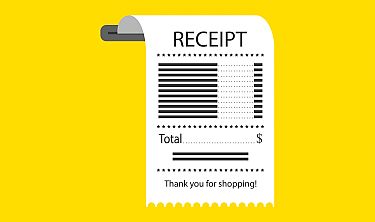Every Indy has a business budget. After all, even the simplest sole proprietorship -- no inventory, no employees, no fancy equipment -- has expenses: data plans, cloud software subscriptions, personal computing hardware, maybe a coworking membership. These outlays are distinct from the Indy’s personal expenditures, like groceries and housing payments.
Once you’ve separated your business and personal expenses in your mental accounting, it’s a small hop to formalize the split. Since going 100 percent Indy a couple years back, I’ve done just that, and I’ve learned a few things along the way.
First lesson: it’s easier than you might imagine to do this properly. Follow along as we outline what you need to do to build a legal wall between your business and personal budgets.
Open a Separate Bank Account
Experts differ on the this step’s importance. The IRS recommends, but does not mandate, that small business owners -- including Indies operating unincorporated sole proprietorships -- open a separate bank account to handle business income and expenses.
While maintaining a separate business bank account has no bearing on your tax audit risk, it may simplify a future audit by clearly isolating your professional and personal expenses, assuming it’s used exclusively for business.
A separate business account also lends your business legitimacy. If the IRS comes calling, your business account strengthens your argument that you’re operating a real business and not improperly claiming hobby expenses for a phantom “business.”
Your business account helps limit your legal and financial liability, as well. A solid wall between your business and personal expenses makes it tougher for creditors to pierce your incorporated entity’s “corporate veil” and render you personally liable for business debts.
Opening your account: what you’ll need
You may not be required to formally incorporate your business before opening your business account. However, you’ll almost certainly need an “assumed” business name, or DBA name. Your secretary of state or county clerk (or both) maintains a registry of assumed names licensed in its jurisdiction; you can apply with them for a nominal fee.
If your business is already incorporated, this handy Small Business Administration post outlines what your bank or credit union will need to open your account. Expect to provide:
- Your business tax ID number (or Social Security number, for unincorporated sole props)
- Your assumed name filing or registration
- Your articles of incorporation, if formally incorporated
- Your business partnership agreement or business organizing document, if formally incorporated
Get a Small Business Credit Card, If You Qualify
Next, consider applying for a small business credit card. This isn’t as important as opening a business bank account and might not be realistic for Indies with impaired credit, but it’s a nice way to address multiple Indy concerns at once:
- Further segregating business from personal expenses
- Creating a reliable source of short- to medium-term financing, possibly at lower rates than business cash advance lenders
- Building credit for formally incorporated businesses
- Reducing net business expenses via credit card rewards
I’m particularly partial to this last concern. I travel for business several times per year; between my business card’s welcome bonus and ongoing travel spending, I’ve racked up enough points since 2016 to finance a multi-day business trip. Not bad!
Check with your issuer, but you shouldn’t need to formally incorporate your business to qualify for a business credit card. If you claim sufficient self-employment income to trigger a Schedule C or C-EZ filing, you’re a business owner in most issuers’ eyes. To maintain strict separation between business and personal funds, always pay your business credit card bills out of your business bank account.
Clearly Document All Business Expenses and Transactions
The IRS requires that a tax-deductible business expense be “both ordinary and necessary.” Even without a separate business bank account, you must clearly document any professional transaction that you plan to deduct on your federal and state taxes. Deductible expenses commonly claimed by Indies include:
- Office expenses, including your home office’s share of your residential rent or mortgage payment
- Business insurance premiums
- Qualified retirement plan contributions
- Business interest expenses, including interest charged on business loans and credit cards
- Business-related travel expenses, including personal vehicle mileage attributable to business activity
Maintaining business expense records
Keep and organize all relevant receipts and invoices, along with bank and credit card statements showing the original transactions. Write a brief note or label explaining each transaction’s business purpose. I personally use a paper filing system that includes printed electronic receipts and invoices, but it’s not a bad idea to digitize these records for better organization -- apps like Shoeboxed and Wave make it easy.
Many Indies use personal vehicles for business. Mileage-tracking apps like MileIQ provide “receipts” for every trip. Just remember to categorize each trip as “business” or “personal” when you get out of the car. (Ride-hailing apps like Lyft and Uber have similar functions.)
The IRS has far more detail here on the types of business expense records you’re expected to keep.
Dealing with gray-area expenses
Not all expenses fall neatly into “business” or “personal” buckets. Happily, the IRS recognizes this, saying: “[I]f you have an expense for something that is used partly for business and partly for personal purposes, divide the total cost between the business and personal parts.” Their example: on a loan used 70 percent for business purposes and 30 percent for personal purposes, you can claim 70 percent of the interest expense for your business.
Another gray-area expense is business-related travel and entertainment. For instance, if you spend the first three days of a five-day trip taking meetings and preparing reports, you can claim lodging and other costs incurred on those days as business expenses; you can’t claim expenses incurred while sightseeing the following two days. Whenever I travel for business, I write succinct but detailed summaries of my activities -- often by the hour -- on any day for which I’m writing off expenses.
Paying yourself
Hopefully, your business’s income exceeds its expenses. For Indies with single-member LLCs or unincorporated sole proprietorships, that surplus is taxable personal income.
How do you claim that personal income for, well, personal use? Simple: you pay yourself. You can do this in one of two ways:
- Regularly paying yourself a reasonable salary, as defined by the IRS (this is generally how S-corps do it)
- Distributing funds from your business account to your personal account as income allows
For tax and accounting purposes, the salary route is cleaner. That said, Indies with irregular cash flows may prefer larger, more timely distributions. If you opt for as-needed distributions, note each distribution’s purpose (most banks’ online transfer functions allow this) so that you can substantiate the expense later.
There’s much more to learn about legally walling off your business expenses. For situation-specific guidance, refer to IRS publications on this topic, and set up a face-to-face with a business tax professional well in advance of tax time.





